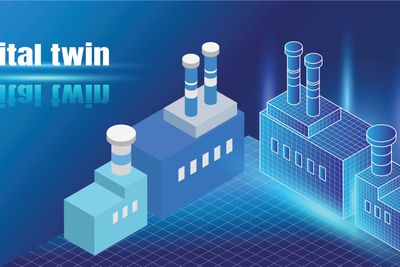Digital Twin Consortium Guides Building Owners and Stakeholders in Carbon Emission Reduction
BOSTON, MA – MARCH 15, 2023 – Today, the Digital Twin Consortium® (DTC®) announced the publication of Decarbonizing the Built World: A Call to Action white paper. The paper outlines how building owners and their community of stakeholders can reduce carbon emissions using performance-based digital twins. By doing so, building owners/operators/stakeholders can ensure optimal building performance and sustainability and contribute to net-zero goals.
“This introductory white paper from our Architecture, Engineering, Construction, and Operations Working Group (AECO) Working Group describes how digital twins can help building stakeholders assess building performance and sustainability to tackle embodied and operational carbon emissions,” said Dan Isaacs, GM & CTO, DTC. “Five supporting user guides, which provide practical detail on implementing digital twins for building performance and sustainability, will follow.”
Buildings account for 40 percent of total greenhouse gas emissions in the U.S. (usually reported as carbon dioxide or carbon equivalents), according to the Building Green blog, Energy Use by Buildings and the Built Environment. “Companies in every industry have committed to decarbonization initiatives, but the community of stakeholders involved in the building lifecycle has not fully and unreservedly accepted its responsibility for reducing the impact of carbon emissions on the environment,” said white paper co-author John Turner, CEO of Gafcon Digital.
“Digital twins can deliver data-driven information that can lead to significant energy, carbon, capital, and operational savings,” confirmed co-author Don McLean, CEO of IES.
“Building performance and sustainability optimization must start early in conceptual planning,” said co-author Craig Stevenson, President of AUROS Group. “A digital twin approach is key to decarbonizing the built environment. There must be a total shift to a regenerative, circular, low-carbon mindset with continuous improvements and interventions to decarbonize buildings.”
“Building owners/operators/stakeholders can also leverage digital twins as part of corporate compliance and validation of Environmental, Social and Governance (ESG) initiatives,” said co-author Anil Sawhney, of RICS. “Companies know that ESG initiatives can significantly impact their bottom lines. Digital twins can help companies accelerate decarbonization strategies to reduce global warming and climate change.”
DTC AECO Working Group practitioners wrote the white paper. For more information and a complete list of authors, download Decarbonizing the Built World: A Call to Action.
DTC will publish a series of user guides owners or occupiers can use to decarbonize new or existing buildings throughout the lifecycle.
About Digital Twin Consortium
Digital Twin Consortium is The Authority of Digital Twin. It coalesces industry, government, and academia to drive consistency in vocabulary, architecture, security, and interoperability of digital twin technology. It advances digital twin technology in many industries, from Aerospace to natural resources. Digital Twin Consortium is a program of Object Management Group. For more information, visit https://www.digitaltwinconsortium.org.
